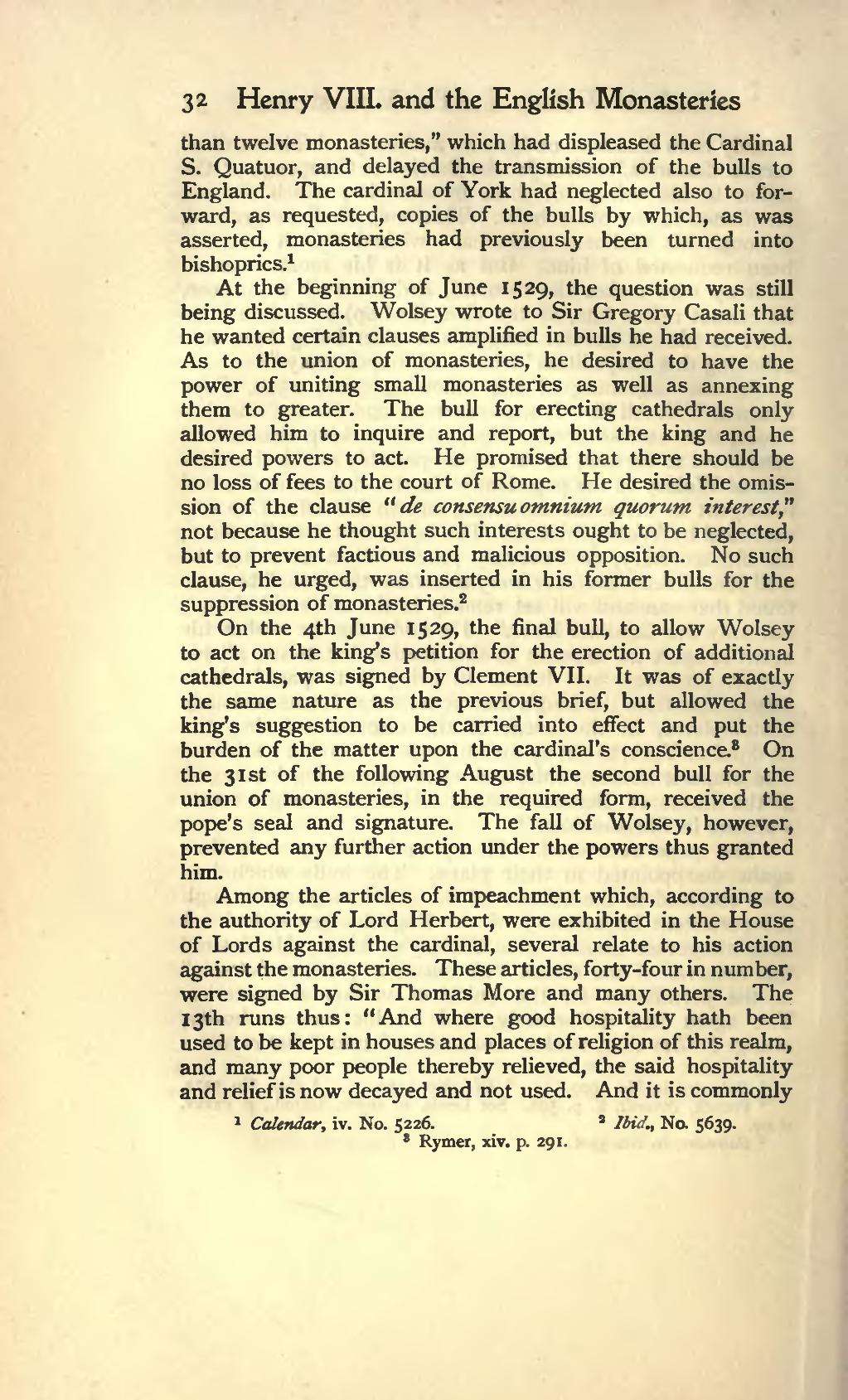than twelve monasteries," which had displeased the Cardinal S. Quatuor, and delayed thetransmission of the bulls to England. The cardinal of York had neglected also to forward, as requested, copies of the bulls by which, as was asserted, monasteries had previously been turned into bishoprics.[1]
At the beginning of June 1529, the question was still being discussed. Wolsey wrote to Sir Gregory Casali that he wanted certain clauses amplified in bulls he had received. As to the union of monasteries, he desired to have the power of uniting small monasteries as well as annexing them to greater. The bull for erecting cathedrals only allowed him to inquire and report, but the king and he desired powers to act. He promised that there should be no loss of fees to the court of Rome. He desired the omission of the clause "de consensu omnium quortim interest," not because he thought such interests ought to be neglected, but to prevent factious and malicious opposition. No such clause, he urged, was inserted in his former bulls for the suppression of monasteries.[2]
On the 4th June 1529, the final bull, to allow Wolsey to act on the king's petition for the erection of additional cathedrals, was signed by Clement VII. It was of exactly the same nature as the previous brief, but allowed the king's suggestion to be carried into effect and put the burden of the matter upon the cardinal's conscience.[3] On the 31st of the following August the second bull for the union of monasteries, in the required form, received the pope's seal and signature. The fall of Wolsey, however, prevented any further action under the powers thus granted him.
Among the articles of impeachment which, according to the authority of Lord Herbert, were exhibited in the House of Lords against the cardinal, several relate to his action against the monasteries. These articles, forty-four in number, were signed by Sir Thomas More and many others. The 13th runs thus: "And where good hospitality hath been used to be kept in houses and places of religion of this realm, and many poor people thereby relieved, the said hospitality and relief is now decayed and not used. And it is commonly
